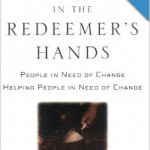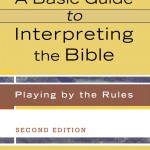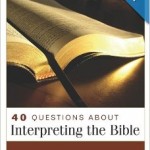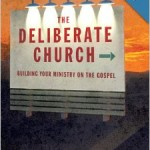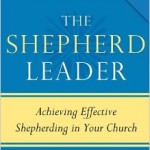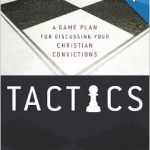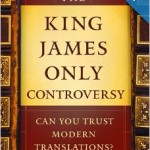I read a lot of books this year – more on that tomorrow – but it wasn’t too difficult to narrow down a list of thirteen favorites. These were, for me, the cream of the crop.
HONORABLE MENTIONS
 Finally Free: Fighting for Purity with the Power of Grace by Heath Lambert. Lambert’s book is a fantastic grace-fueled filling of the gap in modern literature on the subject of fighting for purity. If you took out the chapter on “Using Your Spouse (or Your Singleness)” to Fight Pornography” the book is actually a field manual for killing all kinds of sin. Surely one can use sorrow, humility, gratitude, and confession to slay various, fleshly enemies. I kept thinking that his strategies would find a happy partner in the directives Owen provides in The Mortification of Sin. Any Christian – pastor, small group leader, lay member – would do well to read this book.
Finally Free: Fighting for Purity with the Power of Grace by Heath Lambert. Lambert’s book is a fantastic grace-fueled filling of the gap in modern literature on the subject of fighting for purity. If you took out the chapter on “Using Your Spouse (or Your Singleness)” to Fight Pornography” the book is actually a field manual for killing all kinds of sin. Surely one can use sorrow, humility, gratitude, and confession to slay various, fleshly enemies. I kept thinking that his strategies would find a happy partner in the directives Owen provides in The Mortification of Sin. Any Christian – pastor, small group leader, lay member – would do well to read this book.
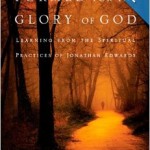 Formed for the Glory of God: Learning from the Spiritual Practices of Jonathan Edwards by Kyle Strobel. Jonathan Edwards is a towering theological giant for many reasons and one of them is his disciplined pursuit of holiness. Strobel is well equipped to write a book that I’m surprised no one had yet written: Edwards on Spiritual Formation. You don’t need to be an Edwards fan to appreciate the rich application found throughout this book. This is now one of my favorite contemporary books on “the ordinary means,” and I can only hope it gets a wide readership.
Formed for the Glory of God: Learning from the Spiritual Practices of Jonathan Edwards by Kyle Strobel. Jonathan Edwards is a towering theological giant for many reasons and one of them is his disciplined pursuit of holiness. Strobel is well equipped to write a book that I’m surprised no one had yet written: Edwards on Spiritual Formation. You don’t need to be an Edwards fan to appreciate the rich application found throughout this book. This is now one of my favorite contemporary books on “the ordinary means,” and I can only hope it gets a wide readership.
 Kingdom Come: The Amillennial Alternative by Sam Storms. This would be higher if I wasn’t already a convinced amilliennialist. In over 500 pages he covers everything from escatological hermeneutics to systematic strengths/weaknesses of the various positions to exegesis of the disputed texts. Storms writes winsomely and clearly, thus the book steers clear of the dry, academic treatment one usually finds in this debate. Surely this is now the “go-to” book on amillennialism.
Kingdom Come: The Amillennial Alternative by Sam Storms. This would be higher if I wasn’t already a convinced amilliennialist. In over 500 pages he covers everything from escatological hermeneutics to systematic strengths/weaknesses of the various positions to exegesis of the disputed texts. Storms writes winsomely and clearly, thus the book steers clear of the dry, academic treatment one usually finds in this debate. Surely this is now the “go-to” book on amillennialism.
TOP TEN FAVORITE READS
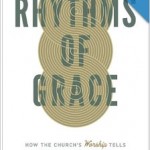 #10 – Rhythms of Grace: How the Church’s Worship Tells the Story of the Gospel by Mike Cosper. When it comes to accessible yet weighty meditation on the topic of worship, this Cosper’s work is as good as it gets. He brings together the best of all that has been published on worship and then puts his Cosper-like curve on the subject. The “One, Two, Three” framework he offers is quite useful: worship has one object and author (God), two contexts (gathered and scattered), and three audiences (God, the church, and the watching world). Every pastor and church member should read chapter nine,”Sing, Sing, Sing,” which offers uncommon wisdom on the topic and rightly challenges Christians to move from being a critic to a participant. An excellent work not to be underestimated.
#10 – Rhythms of Grace: How the Church’s Worship Tells the Story of the Gospel by Mike Cosper. When it comes to accessible yet weighty meditation on the topic of worship, this Cosper’s work is as good as it gets. He brings together the best of all that has been published on worship and then puts his Cosper-like curve on the subject. The “One, Two, Three” framework he offers is quite useful: worship has one object and author (God), two contexts (gathered and scattered), and three audiences (God, the church, and the watching world). Every pastor and church member should read chapter nine,”Sing, Sing, Sing,” which offers uncommon wisdom on the topic and rightly challenges Christians to move from being a critic to a participant. An excellent work not to be underestimated.
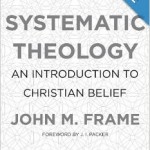 #9 – Systematic Theology: An Introduction to Christian Belief by John Frame. This is a fitting capstone – “magnum opus” would be deserved – to Frame’s career. Everything you would expect from Frame is in this volume: emphasis on God’s lordship, extended sections on epistemology, a warm tone, and, oh yeah, loads of triads. Systematic Theology functions like a “John Frame’s Greatest Hits” album. It really is not much more than a smashing of his 4-volume lordship series with Salvation Belongs to the Lord. That being said, it is an outstanding achievement. If I had to recommend a 1,000+ page systematic for a layperson this might be the one.
#9 – Systematic Theology: An Introduction to Christian Belief by John Frame. This is a fitting capstone – “magnum opus” would be deserved – to Frame’s career. Everything you would expect from Frame is in this volume: emphasis on God’s lordship, extended sections on epistemology, a warm tone, and, oh yeah, loads of triads. Systematic Theology functions like a “John Frame’s Greatest Hits” album. It really is not much more than a smashing of his 4-volume lordship series with Salvation Belongs to the Lord. That being said, it is an outstanding achievement. If I had to recommend a 1,000+ page systematic for a layperson this might be the one.
 #8 – Fit to Burst: Abundance, Mayhem, and the Joy of Motherhood by Rachel Jankovic. I read books on motherhood in order to better understand and serve my wife’s work as a mom. And I am glad I read this one. Jankovic is a wonderful writer, which makes perfect sense when you discover she is Doug Wilson’s daughter and Nate Wilson’s sister. Her wisdom and wit are preeminently displayed in meditations on misplaced “grace” in discipline, the relationship between faithfulness and stress, and the value of cultivating a lively sense of humor in parenting.
#8 – Fit to Burst: Abundance, Mayhem, and the Joy of Motherhood by Rachel Jankovic. I read books on motherhood in order to better understand and serve my wife’s work as a mom. And I am glad I read this one. Jankovic is a wonderful writer, which makes perfect sense when you discover she is Doug Wilson’s daughter and Nate Wilson’s sister. Her wisdom and wit are preeminently displayed in meditations on misplaced “grace” in discipline, the relationship between faithfulness and stress, and the value of cultivating a lively sense of humor in parenting.
 #7 – Saving Eutychus: How to Preach God’s Word and Keep People Awake by Phil Campbell and Gary Millar. This book is not a theology of preaching, but a simple guide on the practice of preaching. Filled with humor and immediately employable wisdom, I can’t see how any preacher wouldn’t benefit greatly from this book. I found it so compelling and challenging that my prayers before preaching regularly include a petition that God would “save Eutychus.” We need more preaching books like this one.
#7 – Saving Eutychus: How to Preach God’s Word and Keep People Awake by Phil Campbell and Gary Millar. This book is not a theology of preaching, but a simple guide on the practice of preaching. Filled with humor and immediately employable wisdom, I can’t see how any preacher wouldn’t benefit greatly from this book. I found it so compelling and challenging that my prayers before preaching regularly include a petition that God would “save Eutychus.” We need more preaching books like this one.
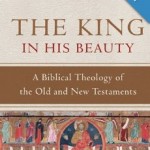 #6 – The King in His Beauty: A Biblical Theology of the Old and New Testaments by Tom Schreiner. Schreiner is one of my favorite living biblical scholars. My appreciation is not rooted in the fact that I almost always agree with his conclusions (his understanding of the millenium withstanding), but in the fact that his scholarship is marked by such devotional warmth. There is pronounced emphasis on God’s lordship in the work and I deeply appreciated his focus on how human beings, created in the image of God, are supposed to relate to their Lord and King with praise, obedience, and fear. The summary conclusions and interludes woven throughout the book make it all the more useful as a discipleship and teaching resource. Well done!
#6 – The King in His Beauty: A Biblical Theology of the Old and New Testaments by Tom Schreiner. Schreiner is one of my favorite living biblical scholars. My appreciation is not rooted in the fact that I almost always agree with his conclusions (his understanding of the millenium withstanding), but in the fact that his scholarship is marked by such devotional warmth. There is pronounced emphasis on God’s lordship in the work and I deeply appreciated his focus on how human beings, created in the image of God, are supposed to relate to their Lord and King with praise, obedience, and fear. The summary conclusions and interludes woven throughout the book make it all the more useful as a discipleship and teaching resource. Well done!
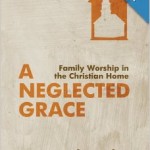 #5 – A Neglected Grace: Family Worship in the Christian Home by Jason Helopoulos. Wow, what a book! Helopoulos manages to tackle the always convicting topic of family worship with uncommon wisdom and grace. Far from feeling condemned after reading, I was freshly encouraged to lead my wife and boys in daily worship. We used this book at our church with a few dozen men and I am not sure I’ve recommended a resource that brought as much instantaneous fruit.
#5 – A Neglected Grace: Family Worship in the Christian Home by Jason Helopoulos. Wow, what a book! Helopoulos manages to tackle the always convicting topic of family worship with uncommon wisdom and grace. Far from feeling condemned after reading, I was freshly encouraged to lead my wife and boys in daily worship. We used this book at our church with a few dozen men and I am not sure I’ve recommended a resource that brought as much instantaneous fruit.
 #4 – Death By Living: Life is Meant to Be Spent by N.D. Wilson. Wilson didn’t disappoint in this long awaited follow-up to his much acclaimed Notes from a Tilt-a-Whirl. I was brought to tears multiple times through laughter, simple reflections on life, and the sadness of a loved one crossing over. As the book concluded a renewed vigor to live this vapor in the wind with passion and purpose thudded on my soul. I can’t wait to read whatever Wilson’s comes up with next.
#4 – Death By Living: Life is Meant to Be Spent by N.D. Wilson. Wilson didn’t disappoint in this long awaited follow-up to his much acclaimed Notes from a Tilt-a-Whirl. I was brought to tears multiple times through laughter, simple reflections on life, and the sadness of a loved one crossing over. As the book concluded a renewed vigor to live this vapor in the wind with passion and purpose thudded on my soul. I can’t wait to read whatever Wilson’s comes up with next.
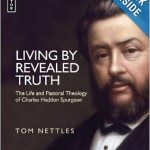 #3 – Living by Revealed Truth: The Life and Pastoral Theology of Charles Haddon Spurgeon by Tom Nettles. I will grant that I am somewhat of a Spurgeon aficionado – after all, I named our third son after the Prince of Preachers. I hope he will one day read this magnificent work. Once you get oriented to the textbook-ish layout you will be confronted with all the gusto one would expect from a momentous publication on CHS. Filled with fresh insights from consultations of little known sources, this book is a worthy, maybe even necessary, addition to your study.
#3 – Living by Revealed Truth: The Life and Pastoral Theology of Charles Haddon Spurgeon by Tom Nettles. I will grant that I am somewhat of a Spurgeon aficionado – after all, I named our third son after the Prince of Preachers. I hope he will one day read this magnificent work. Once you get oriented to the textbook-ish layout you will be confronted with all the gusto one would expect from a momentous publication on CHS. Filled with fresh insights from consultations of little known sources, this book is a worthy, maybe even necessary, addition to your study.
 #2 – Antinomianism: Reformed Theology’s Unwelcome Guest? by Mark Jones. This is a tour-de-force of historical and pastoral theology. Far from being simply a polemical work against modern antinomianism, this book displays a classically and confessionally Reformed understanding of sanctification and the pursuit of holiness. Jones ably shows that historic antinomianism is much more than a person being simply “against law.” This was the most illuminating work I read all year and the one I underlined most. I am sure I will recommend it for years to come.
#2 – Antinomianism: Reformed Theology’s Unwelcome Guest? by Mark Jones. This is a tour-de-force of historical and pastoral theology. Far from being simply a polemical work against modern antinomianism, this book displays a classically and confessionally Reformed understanding of sanctification and the pursuit of holiness. Jones ably shows that historic antinomianism is much more than a person being simply “against law.” This was the most illuminating work I read all year and the one I underlined most. I am sure I will recommend it for years to come.
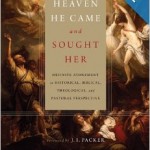 #1 – From Heaven He Came and Sought Her: Definite Atonement in Historical, Biblical, Theological and Pastoral Perspective edited by David Gibson & Jonathan Gibson. I am still amazed that this book has been published. Who would have predicted ten years ago that a major Christian publisher would offer up a massive volume on limited atonement? Praise God for Crossway putting this into print and the Gibson men for editing so pristine a volume. No one writing on the topic of particular redemption will be able to do so without now taking this work into account. In my opinion, this is one of the greatest publishing achievements of the past decade and maybe even longer than that. Tolle lege!
#1 – From Heaven He Came and Sought Her: Definite Atonement in Historical, Biblical, Theological and Pastoral Perspective edited by David Gibson & Jonathan Gibson. I am still amazed that this book has been published. Who would have predicted ten years ago that a major Christian publisher would offer up a massive volume on limited atonement? Praise God for Crossway putting this into print and the Gibson men for editing so pristine a volume. No one writing on the topic of particular redemption will be able to do so without now taking this work into account. In my opinion, this is one of the greatest publishing achievements of the past decade and maybe even longer than that. Tolle lege!

